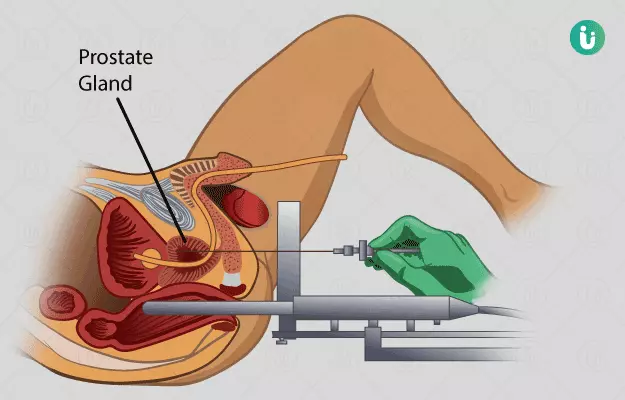You may be admitted at the hospital either one day before or on the day of the operation. You will need to maintain fasting conditions for about six hours before the surgery but will be allowed water and certain fluids up to two hours before the surgery. You may be given a suppository (a pellet) or an enema (a liquid medicine) to help clear your bowels. These are placed in your rectum. Just before the surgery, a nurse will put knee-length, elasticated socks on your legs, which lower the chance of blood clot formation in your legs. These socks will remain on till you start walking after the surgery.
The operation is performed under general anaesthetics, and you will be asleep during the procedure. The entire procedure takes nearly two to four hours but may take longer in some cases.
The surgeon will remove the prostate and all nearby tissues, including the lymph nodes depending on the presence of cancer cells in the lymph nodes.
The following are the types of surgery:
- Open surgery: It is also known as retropubic surgery. The surgeon will make a single incision from below your navel to just above the pubic bone. They will check to see if cancer has spread to the lymph nodes. This method of surgery can be used for nerve-sparing surgery. In a nerve-sparing surgery, the surgeon removes the prostate tissue away without damaging the nerves that control erections. However, if the nerves are too close to the cancer cells, the doctor will have to remove them as leaving them will not completely treat cancer. Your abdomen will have a scar after the surgery.
- Minimally invasive surgery (laparoscopy): The surgeon will not make any major incision. Instead, they will make four to six small cuts in your abdomen. They will pass a laparoscope, which is a long, thin tube with a camera and light at one end, through one of the cuts. The other surgical instruments will be inserted through the other cuts. Nerve-sparing surgery can be performed with this technique too (a procedure to protect the nerves). This surgery can also be performed robotically. In robotic surgery, the surgeon sits a little away from the patient and controls the robot that is right next to you. The machine has four arms; one arm has a camera, and the others have surgical instruments. The doctor can view the internal structures of the body on a screen and can control the arms of the robot to perform the surgery.
After the surgery
After the surgery, you will wake up to find yourself in the recovery room. You will have the following attached to your body:
- A catheter (a thin, flexible tube) to drain your urine
- An oxygen mask as you will be breathing slowly due to anaesthesia
- An intravenous line to administer fluids and painkillers
An additional tube may be attached for a day or two to drain any fluid from the place where your prostate was present.
The catheter will be attached during the surgery. Initially, you will feel an urge to urinate all the time, and you will feel uncomfortable, but in a few hours, this feeling will pass. The catheter is attached so that all the urine is drained without you doing anything. You will be allowed to go home with the catheter attached, and a nurse will explain how to care for it. About one to three weeks later, it will be removed at the hospital.
If a laparoscopic surgery was performed, you might feel a little pain in your shoulder for a few days. The carbon dioxide gas used during the surgery irritates the nerves and causes shoulder pain. You may also feel bloated and some cramping, which goes away with time.
The surgery may cause some bruising and swelling around the penis and testicles, which could make it uncomfortable to sit on hard surfaces. This problem usually settles in a few weeks. If the lymph nodes were also removed, it might rarely cause your scrotum (the skin that holds the testicles) and either one or both legs to swell. You may need special compression socks, which help in draining the fluid from the legs.
You will be made to start walking as soon as you can. This keeps up blood circulation and reduces the risk of clotting.
Depending on your recovery, you may be discharged within a day or a week of the surgery.






































